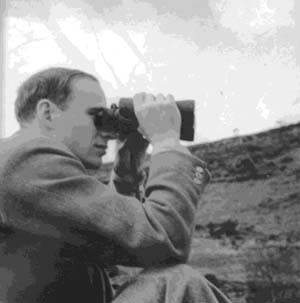

Conservation… draws us towards not only a scientific but a philosophical and historical approach to the problems of the earth and our place on it. It propounds from a different angle the question… ‘What are people for?’
E. M. Nicholson, ‘The Place of Conservation’ in The Humanist Frame (1961)
Edward Max Nicholson, known as Max, was an enormously influential environmentalist, ornithologist, and organiser, whose far-reaching vision shaped modern conservation in the UK and internationally. A key figure in founding both the Nature Conservancy and the World Wildlife Fund (WWF), Nicholson championed a rational, evidence-based approach to understanding and protecting the natural world, and highlighted our ethical responsibility to do so. He was a contributor to The Humanist Frame (1961), edited by his friend and collaborator Julian Huxley, and took part in various humanist events with an environmental focus.
The earth must in part be used as our home, in part be tended as our garden, in part be managed for our many needs in work and leisure, and in part be guarded against ourselves by a self-denying ordinance so that it may be handed down to posterity in a state of nature.
E. M. Nicholson, ‘The Place of Conservation’ in The Humanist Frame (1961)
Edward Max Nicholson was born in Ireland in 1904 to English parents, and educated at Sedbergh School and Hertford College, Oxford, where he read history. A passion for nature was established early, and Nicholson was already organising bird counts and surveys as a student, including the first national survey of any British bird (the grey heron) in 1927. In fact, he had already published Birds in England (1926) before a scholarship enabled his entry to Oxford. Nicholson’s early books, like The Art of Bird-Watching (1931), advocated for cooperative, data-driven approaches to monitoring and conservation. In 1933, he founded the British Trust for Ornithology.
Nicholson’s organisational talents extended beyond birds. His 1931 essay ‘A National Plan for Britain’ led to the formation of the influential think tank Political and Economic Planning (PEP), and he became an active member of its Post War Aims Group, which sought to learn from the mistakes following the First World War. During the Second World War, he worked in the Ministry of Shipping (later the Ministry of War Transport), and subsequently as secretary to prominent Labour Party politician Herbert Morrison, chairing the committee for the 1951 Festival of Britain.
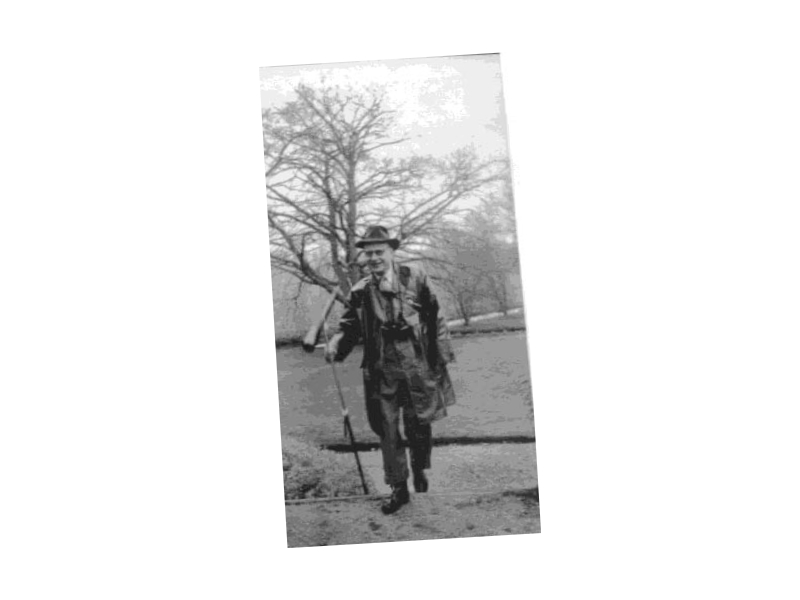
Nicholson’s most significant environmental work began during this period. Working alongside the humanist and biologist Julian Huxley, he was involved in forming the International Union for the Protection of Nature (IUPN, now IUCN) in 1947-48. In 1949, he was instrumental in drafting the legislation that established the Nature Conservancy, the UK’s first state research body for ecology, becoming its Director General from 1952 to 1966. Under his leadership, the Conservancy championed ecology’s relevance to land use and policy, establishing National Nature Reserves and Sites of Special Scientific Interest (SSSIs). It also pioneered research into the effects of toxic chemicals on wildlife. Nicholson also worked hard to raise the profile of conservation, championing education (including University College London’s MSc in ecology and conservation), supporting volunteer naturalists, and organising public events.
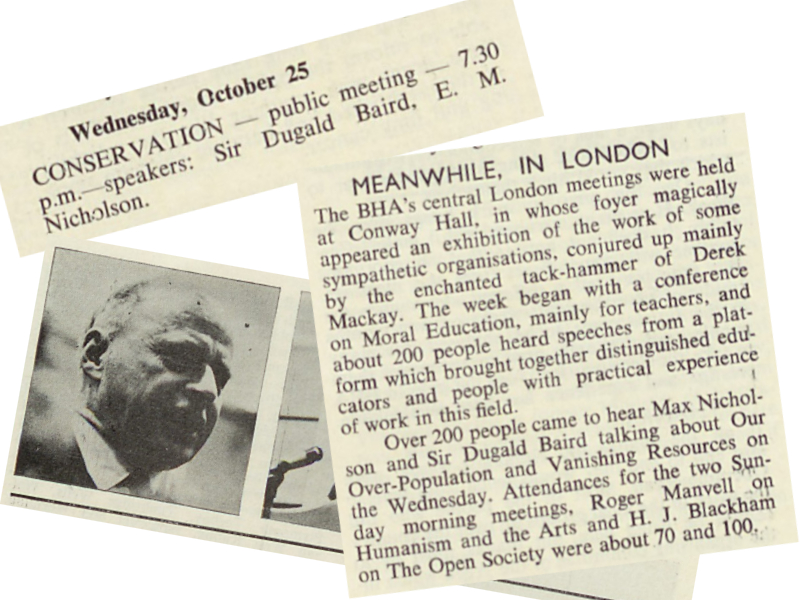
In 1961, Nicholson was a key figure, alongside Victor Stolan, Sir Peter Scott, and Guy Mountfort, in founding the World Wildlife Fund (now the World Wide Fund for Nature). In the same year, he contributed an essay to The Humanist Frame, a collection edited by Julian Huxley exploring a modern humanist worldview. After leaving the Nature Conservancy, he established the environmental consultancy firm Land Use Consultants in 1966, and later helped set up the UK’s first urban ecology park and the Trust for Urban Ecology (1976). He was also involved in founding Earthwatch Europe, and originated the idea of the Silver Jubilee Walkway – a trail taking in many of London’s significant historic sites. Nicholson served as President of the Royal Society for the Protection of Birds (RSPB) from 1980-1985.
Into his 90s, Nicholson was still actively concerned with the environment and the future of the planet. In 1997, he founded the New Renaissance Group to explore concerns around sustainable development, globalisation, and the role of science. Nicholson saw this as a continuation of the ideas discussed in The Humanist Frame, referring to it as a ‘New Humanist Group’ with an environmental focus. He remained active in the Group (which produced an essay collection, organised a workshop, and produced a collective statement) until it was wound up in 2002.
Max Nicholson died on 26 April 2003, at the age of 98.
The diversity of life, with our need to cherish it, was at the core of his being.
Sir Crispin Tickell, address at the memorial service for Max Nicholson, 27 June 2003
Nicholson possessed an extraordinary ability to translate scientific understanding and foresight into practical action and robust organisations. He shaped the UK’s conservation infrastructure, as well as establishing international bodies like the IUCN and WWF, bridging science, policy, and public engagement, and advocating for rational planning and ecological awareness long before they became mainstream. As a humanist, Nicholson exemplified a sense of responsibility for the natural world, urging human ingenuity and cooperative effort to address environmental challenges. His contribution to The Humanist Frame explicitly placed environmental concerns within a humanist context, seeing the preservation of nature as integral to human progress and wellbeing. His was a life committed to applying scientific knowledge ethically and effectively for the long-term benefit of both humanity and the planet.
Julian Huxley (ed.), The Humanist Frame (1961)
Edward Max Nicholson | Oxford Dictionary of National Biography
Papers of Edward Max Nicholson | Bodleian Libraries
E. M. Nicholson, The Environmental Revolution: A Guide for the New Masters of the World (1970)
Max Nicholson | Tribute website
Main image: Max Nicholson © Piers Nicholson via www.maxnicholson.com
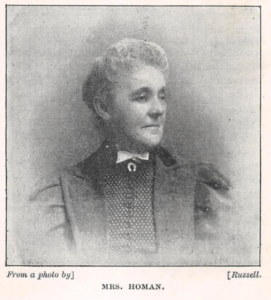
Ruth Homan was an educationist, women’s welfare campaigner, and one of the founding members of the West London Ethical Society […]
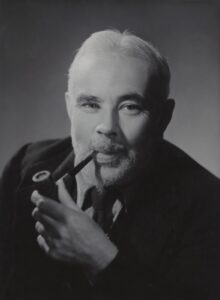
Ethics really ought to have something to do with life. Ethics ought to tell you how to be good or […]
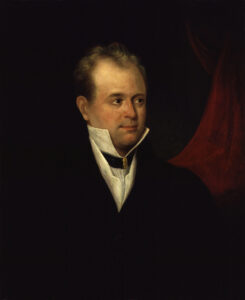
I have no view but public good; certainly no desire to injure any one, but a passionate desire to do […]
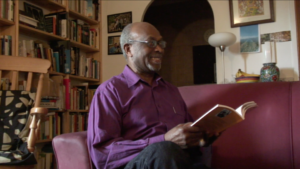
The difference and variety of our human family more and more seems to me to be a wise provision that […]